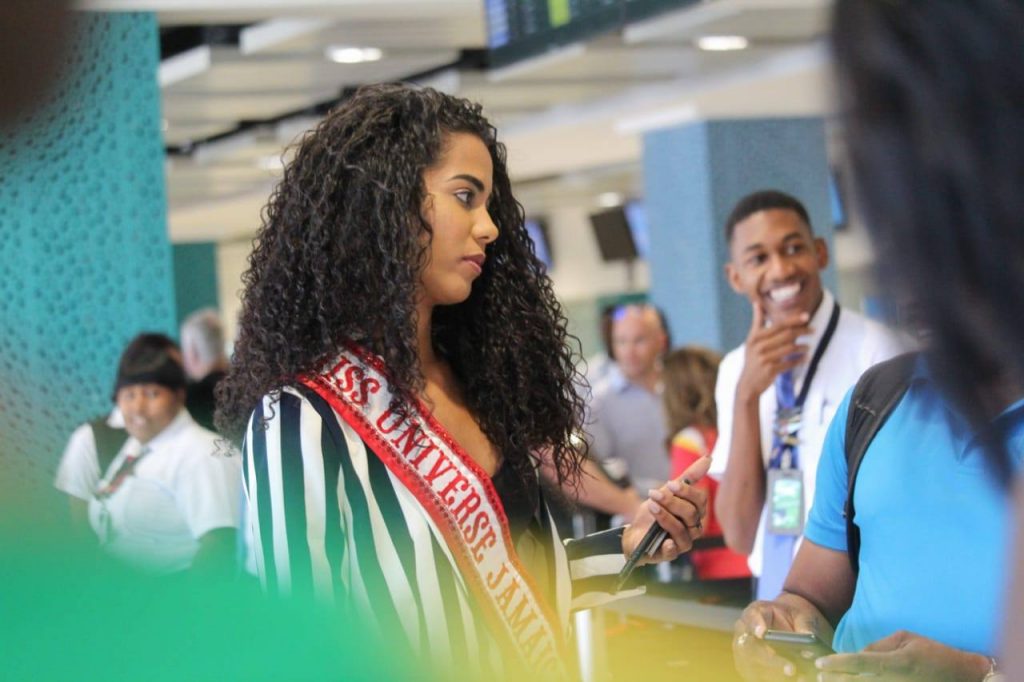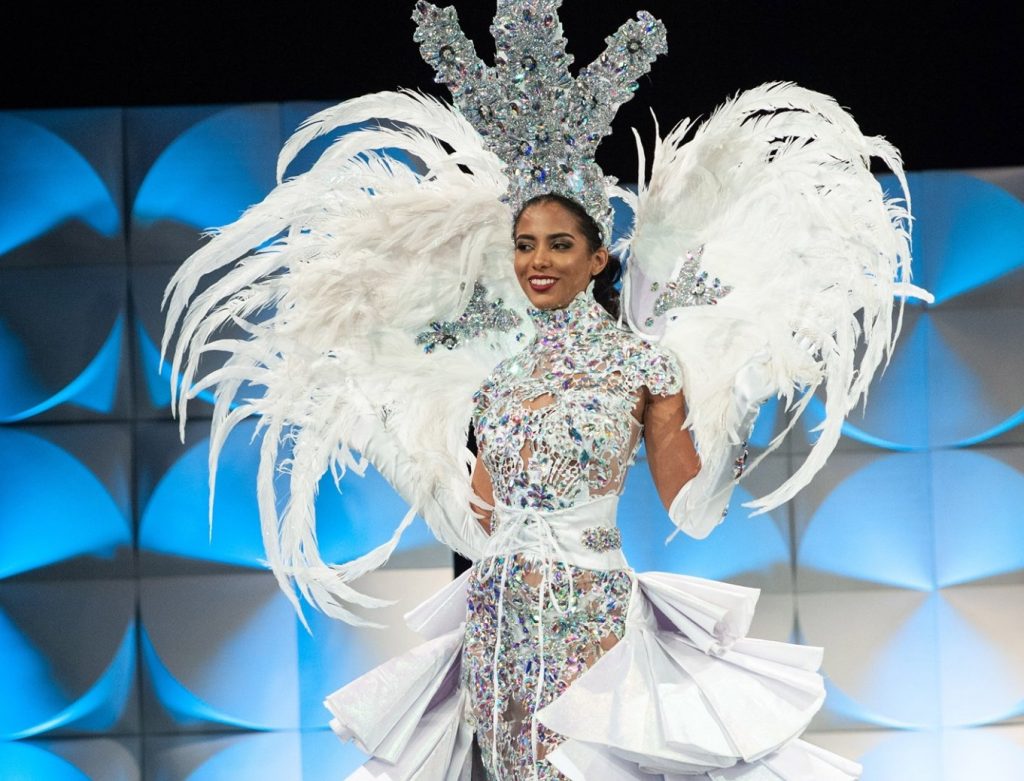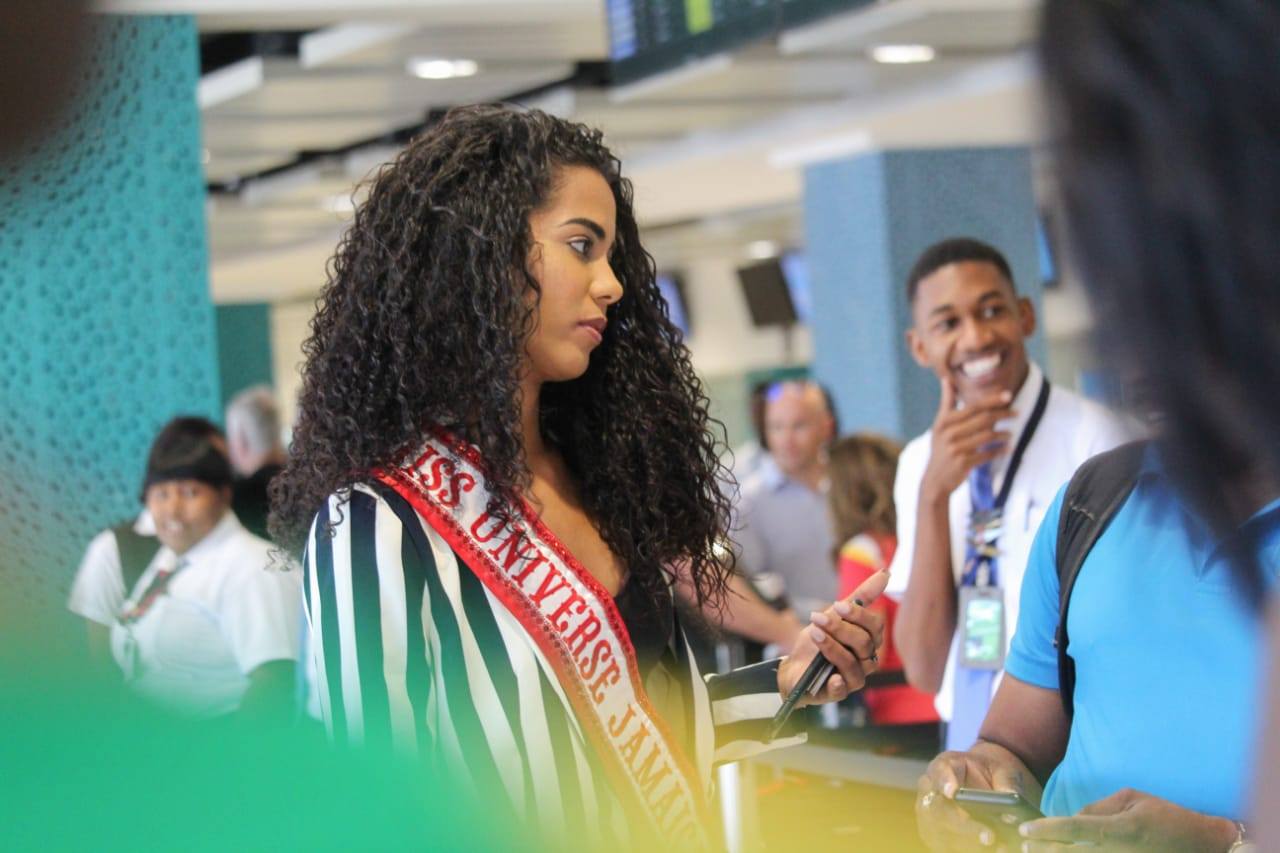Beauty pageants continue to be a source of heated debates across cultures and countries, especially on the topic of women’s rights and representation. The call for diversity, and the discarding of the traditional and often racially-biased definition of beauty has intensified in recent times among audiences, particularly in the global South where many still struggle to see any hint of themselves in their representatives.
Jamaica holds the distinction of being home to some of the most beautiful people on earth, and in the case of the Miss World and Miss Universe pageants, our tiny island continues to have a big impact with a roster of representatives who have demonstrated poise, talent and intellect. There have also been rays of representational hope in contestants like our Jamaican Girl, Dr Terri-Karelle Reid, the stunning Davina Bennet, with her afro crown, Dr Sanneta Myrie and Zahra Redwood who paved the way for natural-locked beauties with a purpose.

On Saturday, December 7, it was that time again when Jamaicans, regardless of their personal opinion on the value of pageants in the modern era, tuned in online to track the progress of ‘our girl’, this year, Iana Tickle Garcia. After all, Miss Universe Jamaica is a representative of our country, and we like to do well, more importantly, we like winning. By late afternoon, an image had been posted by the local franchise holders of the Miss Universe pageant of “our girl” in her national costume dressed as Annie Palmer, The White Witch of Rosehall. That’s right, Annie Palmer was being showcased as the iconic legend of Rose Hall, and a cultural cornerstone. For a moment, many of us paused, hopeful that there was some mix-up with the image being presented and the accompanying narrative. It is true that Rose Hall is among the best-preserved and packaged plantation tour experiences the island has to offer to both Jamaicans and visitors, but when did its cruel and criminal mistress become a “cultural icon”? Outrage followed, and rightly so. More than 90 per cent of Jamaicans are of African descent. Our ancestors were made to endure unimaginable cruelty, hardships, murder and mayhem.
For context, the national costume segment is meant to provide participating countries with a unique platform to creatively showcase patriotic pride through symbols and other iconic elements. The annual debate had now moved from the usual issue of design and aesthetics – who can forget the year when we were all innah wi ackee over a particular design – to a quest to really understand the clear cognitive dissonance on display. If we accept that slavery and the horrors of plantation life were real and remain a scar on human history, how would it then be appropriate to celebrate an associated figure as a symbol of national pride, much less culture, in this context?

Miss Universe Jamaica responds…
Both the franchise holders of Miss Universe Jamaica, and individuals associated with the attraction that inspired it, have issued statements which seek to clarify their position and the thinking behind the costume selection for Garcia. Unfortunately, the tone-deaf statement from the Miss Universe Jamaica organisers, in particular, has removed any doubt as to what many suspected fuelled the decision in the first place – a perilous gap in cultural IQ and a lack of critical thinking in differentiating historical relics from cultural iconography meant to move and inspire a global audience. This was, of course, accompanied by a quote from Marcus Mosiah Garvey, global anti-colonial champion, black nationalist and Jamaica’s first national hero, “a people without the knowledge of their past history, origin and culture is like a tree without roots”. Talk about adding insult to injury, then wrapping it up in irony!
In two now-deleted problematic, but insightful tweets, Garcia swiftly and boldly dismissed the “negativity and criticisms” of Jamaicans who voiced more than their disapproval of her costume, inspired by the real or fictitious murderer of enslaved people of African descent and textbook psychopath, Annie Palmer, and further rubbished the direct affront it presented to the historical context from which we came, and supposedly, move forward as “Out of Many One People”. By all accounts, the initial comments, shaped by shock and total amazement, were directed at the organisers and not the contestant. Many have since pointed out Garcia’s youth in defence of her utterances. But, when did youth become an excuse for wrong and strong ignorance in the face of serious concern? The lesson to future contestants should be to remain silent, pending proper guidance and advice when there is a lack of knowledge on certain issues and gaps in training in basic diplomacy or public relations.
Though Miss Jamaica Universe operates as a private entity and Garcia, her handlers and pageant owners, are entitled to their opinions and creative licence, they are certainly not entitled to their own facts on the matter of Jamaica’s history, the atrocity of slavery and the multi-generational trauma and scars left behind which demand our collective effort to heal. Christopher Colombus – a real historical figure – features prominently in the history of many indigenous peoples as the perpetrator of mass genocide, rape and robbery. I am sure there are also world-famous sites and relics in countries whose shores bear the indelible marks of his cruel campaign, that showcase these for educational purposes, but imagine an indigenous person, dressed as Colombus on an occasion that calls for a national costume. There is a clear distinction between marketing an attraction, crafting an educational narrative and celebrating the history, culture and national symbols of a country.
Never again: The urgent need to define Jamaican identity and accurately teach our history
This debate has once again highlighted the urgent need for a structured national programme to move beyond the call for values and attitudes campaigns towards defining our Jamaican identity in a clear, comprehensive, and historically accurate manner. What drives values and attitudes more than knowledge of self? In the words of Verene Shepherd, professor of social history, and director of the Centre for Reparation Research at The University of the West Indies, Mona, “Jamaica is not an African-centred society; history is not our core disciplinary anchor to an empowering identity and not many of us are insisting that it should be. The result of our silence and neglect of post-slavery responsibility is this costume and people who think it is ok”.
There are people who continue to struggle with making the distinction between teaching our history – the trials and the triumphs – and crossing the line to celebrate the associated symbols, figures and murderous acts of cruel and inhumane people who viewed and treated our ancestors as anything but human beings born with rights and deserving of dignity.
This goes beyond the annual arguments surrounding style, and goes to the deeper and unresolved discussion we continue to push aside as a nation about who we are, what represents our collective identity as an independent nation and how we authentically package and present that to the rest of the world. In the end, poetic justice was swiftly served: the stunning, eloquent and aware Black woman that is Zozibini Tunzi, Miss South Africa, took her rightful place as the beautiful, bold and fierce leader we need at this time, wearing the crown as Miss Universe.
Latoya West-Blackwood is a proud Pan-Africanist publishing, planning and serving community, country and the world from the creative capital of the Caribbean, Kingston, Jamaica.







